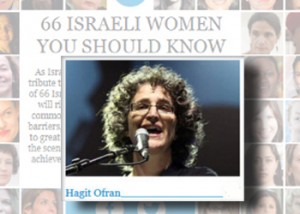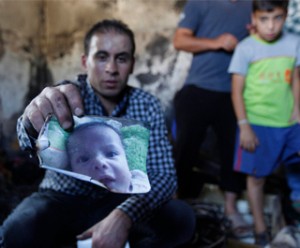Last week, Sen. Chuck Schumer (D-N.Y.) and Rep. Eliot Engel (D-N.Y.) – prominent Jewish members of Congress – announced they will oppose the deal negotiated between Iran and the P5+1 (China, France, Germany Russia, the United Kingdom, the United States) to curb Iran’s nuclear program. Earlier in the week, two other leading Jewish members of Congress, Reps. Nita Lowey (D-N.Y.) and Ted Deutch (D-Fla.), did likewise. All of these members of Congress should reconsider this misguided, flawed position.
This week, Alpher discusses the European Union and Israel's shared issues and interests that mitigate against tensions on Israel regarding the settlements and the peace process including energy, illegal immigration, and intelligence; how European Jewish immigration to Israel affects Israeli-European ties; where the Greek financial crisis fits in; and what happens if EU economic sanctions against Israel because of the Palestinian issue grow stronger and even develop into political and cultural sanctions; where this leaves the European-Israeli relationship and what Israel should do about it.
There's a lot of noise right now about the Iran nuclear deal. Israeli Prime Minister Benjamin
Netanyahu and some Jewish community organizations have declared war on the deal. They and their allies –
including members of the right-wing Evangelical movement and point-scoring political partisans – are bombarding
members of Congress, the public and the media with a barrage of anti-deal talking points and sound
bites.
I fear that lost in this din are key facts that members of Congress – who will soon have the responsibility to vote
whether to approve the deal – as well as the public at large, need to know.
Last week’s arson attack in the West Bank village of Duma burned to death a Palestinian baby and severely injured his parents and his brother. It also re-introduced to the term “Price Tag,” the violent attacks by settlers – mainly against Palestinians, and sometimes against Israelis – that range in severity between vandalism and murder.
The attack again demonstrated the misperceptions among Israelis and Americans about the nature of the violence perpetrated by extremist settlers. Contrary to what many would like to believe, these acts of violence – including murderous attacks such as last week’s – are typically not carried out by lone psychopaths or even by a handful of lunatics.
Listen to the August 6th Briefing Call with:

Hagit Ofran
Peace Now Settlement Watch Director
Hagit discussed the latest developments in regard to Israeli settler extremists, settlements in the West Bank and Israeli government settlement construction policy, as well as Peace Now’s recent rally against Jewish terrorism and incitement, other recent successful Peace Now activities.
Listing to a recording: Hagit Ofran briefing 6 Aug 2015
This week, Alpher discusses why Israel’s unilateral withdrawal of settlements and troops from the Gaza Strip ten years ago didn’t produce additional withdrawals from the West Bank as well and generate some sort of positive momentum toward resolution of the conflict; if Sharon and Olmert had different approaches to the idea of independent withdrawal; the settler movement’s response to the Gaza withdrawal; how Sharon envisioned the settlement project, and what made him adopt the extreme measure of unilateral withdrawal; Labor leader Isaac Herzog on the withdrawal and negotiating a West Bank withdrawal; and a cost-benefit analysis of a possible IDF withdrawal on the West Bank.
 Americans for Peace Now (APN) is outraged by the murderous arson attack in the West Bank,
perpetrated by Jewish terrorists, who today killed a Palestinian baby and critically injured his 4-year-old
brother and his parents.
Americans for Peace Now (APN) is outraged by the murderous arson attack in the West Bank,
perpetrated by Jewish terrorists, who today killed a Palestinian baby and critically injured his 4-year-old
brother and his parents.
APN's President and CEO Debra DeLee said: "Outrage in the face of this monstrous attack should be translated into action: Action by Israel's law-enforcement authorities to find and punish the killers, action by Israeli political leaders and opinion leaders – particularly among the nationalistic right – to stop inciting actions and hate-speech, and action by the Israeli government to fight the environment of lawlessness that Jewish settlers have spawned in the West Bank. This environment, unfortunately, is nourished by Israeli government settlement policies, which reward settler lawlessness, as we have seen this week in the settlement of Beit-El. When building settlements on privately owned Palestinian land and violently clashing with Israeli security officers is immediately rewarded by Prime Minster Netanyahu, who vowed to build 300 new homes there, the message to the settlers is clear: In the wild West Bank, lawlessness pays!"
Americans for Peace Now joins its Israeli sister-organization, Peace Now, in strongly condemning the Israeli government's approval of constructing hundreds of new housing units in settlements in the West Bank and East Jerusalem. APN welcomes the Obama administration's statement, issued last night, which states that settlement expansion threatens the two-state solution and calls into question Israel's commitment to a negotiated resolution to the conflict.
Dror Moreh wrote this letter for Americans for Peace Now, because the only reasonable way to resolve the conflict is a two-state solution. And that's the message former Shin Bet directors make in his documentary The Gatekeepers.
On Friday, 24 July 2015, Peace Now held it's annual conference in Tel Aviv under the title: Israel Now - Building an Alternative." With 1,200 participants, many of them youth, this was Peace Now's largest conference of all time. Some 60 speakers - including Members of Knesset, journalists, civil society leaders, experts and activists - participated in different panels focusing on the two state solution; international pressure; identity politics; the parliamentary opposition; and the struggle against silencing and de-legitimization of peace organizations. Another issue highlighted at the conference was the struggle against the demolition of Palestinian village of Susya, which is taking place these very days.
Watch highlights of the conference here:
